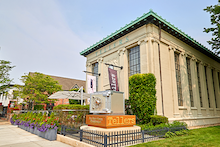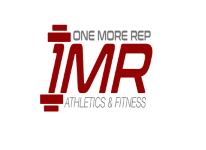Looking for answers to customer support questions? Click Here
Wedding Forums > Brides Helping Brides ™ > 30 comfort measures to ease labor pain
30 comfort measures to ease labor pain
shamma
Posted: Aug 26, 2003 01:10 PM+

Posted: Aug 26, 2003 01:10 PM


30 comfort measures to ease labor pain
30 comfort measures to ease labor painby Henci Goer
Comfort measures are strategies designed to help you cope with the pain of labor. A good childbirth preparation class should teach you an assortment of ways to cope, as will many books.
What are some common comfort measures?
Environment:
-- dim lights
-- peaceful surroundings
-- privacy
-- warmth
-- music
Physical:
-- walking
-- pelvic rocking
-- positioning pillows for comfort
-- slow dancing with partner
-- sitting on birth ball and swaying
-- lifting up the abdomen
Touch:
-- massage
-- stroking
-- cuddling
-- counterpressure against lower
advertisement
back
-- acupressure
Heat:
-- deep tub bath
-- shower
-- heated rice sock on groin or back
Cold:
-- ice packs on lower back
-- cool cloth to wipe face
Cognitive:
-- visualization
-- affirmation
-- focusing on the breath
-- structured breathing patterns
-- non-focused awareness (paying attention to everything you see, hear, feel, smell without focusing on any)
-- prayer
Aromatherapy
Vocalizing: moaning and groaning
Labor companion: The continuous presence of an experienced woman can reduce the use of pain medication in general and epidurals in particular (3). The presence of male partners, however desirable, doesn’t seem to have this effect (7).
30 comfort measures to ease labor pain
continued from page 1
What are the benefits of using comfort measures?
Basically, there are three ways of handling labor pain: comfort measures, narcotics (opiates) and regional analgesia, which consists of epidurals, intrathecal or spinal injections, and their combinations. Comfort measures are about as effective as narcotics at making labor tolerable. However, narcotics can potentially have adverse effects on you and your baby. And regional analgesia, while offering superior pain relief, can cause a host of problems not only for you and your baby, but for the labor as well.
Comfort measures:
do not inhibit labor and in many cases, can enhance labor progress: Mobility and activities like pelvic rocking help the baby shift into the optimal position for birth. Upright postures allow gravity to help the baby open the cervix and descend into the birth canal. Strategies to relax muscles keep muscle tension from impeding the work of the uterus. Cognitive techniques reduce fear. Emotional distress, as opposed to the healthy, normal stress of labor, can interfere with labor directly through the production of stress hormones and indirectly by preventing women from paying attention to their bodies and working effectively with their labors.
promote a sense of mastery: Studies show that the key to a positive labor experience is the feeling that you have control over events and can cope with what is happening to you (4-5,10). Comfort measures make you the active agent in helping yourself. This is an important component of a sense of mastery.
facilitate endorphin production: During periods of intense physical demand and stress, the body produces natural pain killers called “endorphins.” In a case of “no pain, no gain,” endorphins are also responsible for the exhilaration and joy that can follow such periods (6).
enable you to postpone the use of pain medication: Medications are more likely to cause problems with repeated doses, when different types of drugs are mixed, and with prolonged use. By using comfort measures, you may need only one dose of a narcotic instead of three, you may avoid using both a narcotic and an epidural, or you may delay having an epidural.
can instantly be stopped if it doesn’t help or in the unlikely event that it causes trouble: So, for example, if the baby doesn’t like you to be in some particular position, you can simply find another one. Pain medications, once administered, cannot be rescinded, and you may need another drug or procedure to remedy the ill effects. These, in turn, introduce their own risks.
What are the potential drawbacks?
Comfort measures may not provide adequate pain relief. This can lead to a feeling of personal failure if you wanted an unmedicated birth. Still, this will rarely be the case where caregivers and loved ones respect and support your desire to avoid pain medication, acknowledge your efforts to do so, and validate your disappointment at not achieving that goal.
How might comfort measures affect your birth experience and postpartum recovery?
As with any experience that pushes you to your limits, an unmedicated labor can be a transformational event that changes how you think of yourself forever. Your pride in your achievement, the confidence in your strength and capabilities that you can gain are, perhaps, the ideal preparation for meeting the challenges of parenting. Avoiding or delaying the use of pain medication also gives you your best chance of having a complication-free labor and a healthy baby, which may mean an easier postpartum recovery.
Welcome New Vendors
- The Barn At Old Bethpage Discover the charm a...
- Jack & Rose Jack & Rose Floral D...
- Tellers: An American Chophouse Celebrate Your Love ...
- Cup Of Tea Creative Unique Wedding Gifts...
- Speeches for Milestones The Big Day Has Arri...
- Long Island Bridal Expo Connecting Brides & ...
- 1 More Rep 1 More Rep: Elite Fi...
- Bellport Inn The Bellport Inn –...
- Fiddlers Dream Music Experience the Music...
- Havana Central Celebrate Your Weddi...
- Primerica Nelida Flynn Primerica Nelida Fly...
- Acetra Affairs Here at Acetra Affai...





















